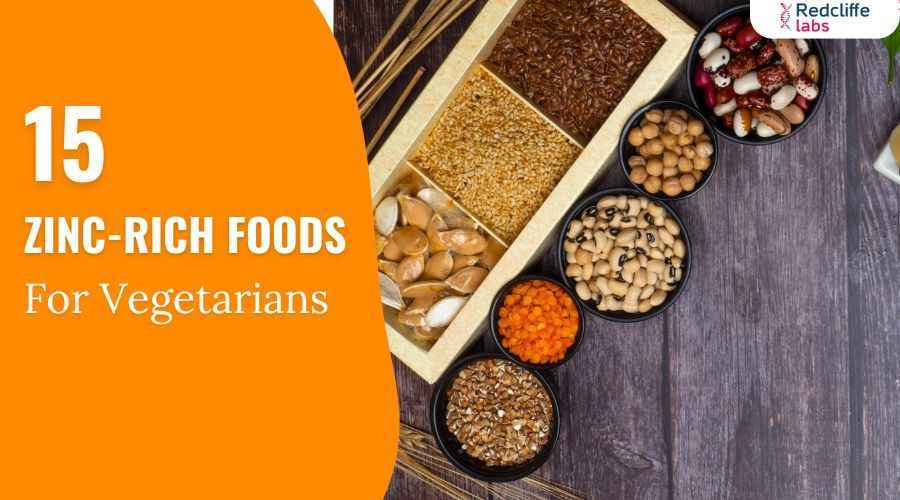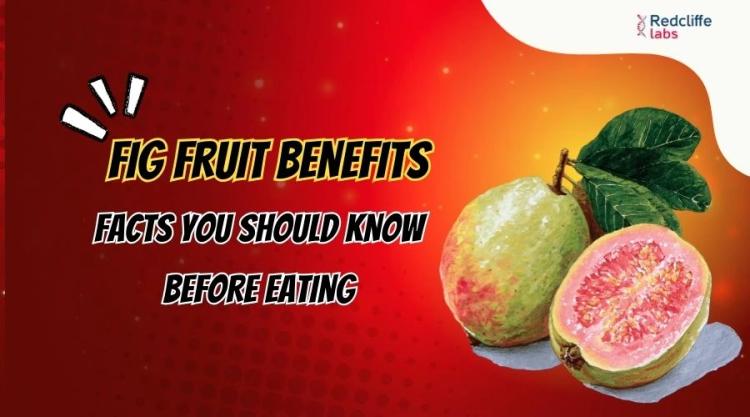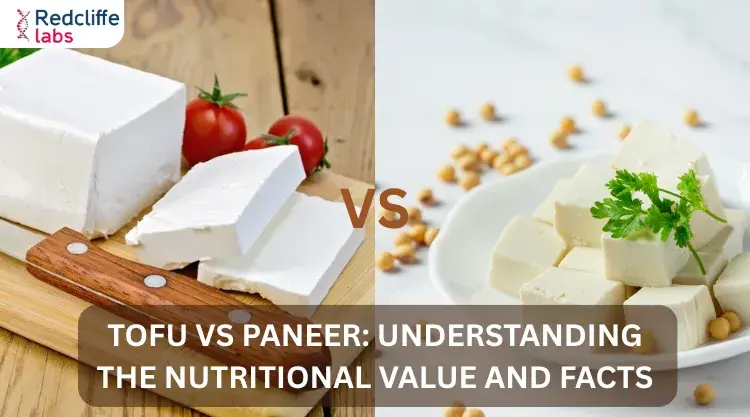15 Zinc-Rich Foods For Vegetarians: Check the List

Medically Reviewed By
Dr. Geetanjali Gupta
Written By Muskan Taneja
on Oct 22, 2024
Last Edit Made By Muskan Taneja
on Jul 19, 2025

The human body requires nutrients, minerals, and vitamins, which are essential for the body. Zinc is one such crucial mineral. It is the second most concentrated mineral after iron. Its deficiency can cause diarrhea, frequent infections, and hair loss. Most of the zinc comes from non-vegetarian or seafood. Vegetarian, don’t worry. Today, let’s discover 15 zinc-rich foods for vegetarians.
Role of Zinc For A Healthy Body
Zinc is a trace mineral that plays an important role in your body. Experts say that zinc helps in cell division, growth, breakdown of carbohydrates, and wound healing.
A study of 5 months showed zinc can reduce the risks of becoming sick with the flu or the common cold. During pregnancy, women require zinc for proper growth and development.
Many food sources, supplements, and multivitamins of zinc are on the market. People also find zinc in some over-the-counter medicines. The recommended dietary compound of zinc differs based on age.
Here are the daily recommended dietary allowances for zinc.
| Age | Male | Female | Pregnancy | Lactation |
| 0-6 months | 2 mg | 2 mg | - | - |
| 7-12 months | 3 mg | 3 mg | - | - |
| 1-3 years | 3 mg | 3 mg | - | - |
| 4-8 years | 5 mg | 5 mg | - | - |
| 9-13 years | 8 mg | 8 mg | - | - |
| 14-18 years | 11 mg | 9 mg | 12 mg | 13 mg |
| 19+ years | 11 mg | 8 mg | 11 mg | 12 mg |

15 Zinc-Rich Foods For Vegetarian
Meat, oysters, beef, and crab are the rich source of zinc. However, they are not suitable for vegetarians. Zinc-rich foods for vegetarians support bodily function, wound healing, immune system, and overall health. Here are 15 zinc-rich foods for vegetarians that provide the same effective results as non-vegetarian foods.
| Food | Zinc Content in 100g |
| Soybeans | 4.2 mg |
| Peas | 3.8 mg |
| Lentils | 3.7 mg |
| Peanuts | 3.5 mg |
| Sweetcorn | 3.5 mg |
| Blackcurrants | 0.3 mg |
| Strawberries | 0.3 mg |
| Redcurrants | 0.3 mg |
| Banana | 0.21 mg |
| Blackberries | 0.19 mg |
| Pecan | 5.3 mg |
| Brazil Nut | 5.3 mg |
| Walnut | 2.7 mg |
| Almond | 2.2 mg |
| Hazelnut | 1.9 mg |
Let’s understand each of them.
Soybeans
Soybeans have a reputation for their protein content. But do you know soybeans have one of the highest zinc concentrations? 100g of soybeans contains 4.2 mg of zinc, which makes the perfect supplement for a balanced diet. Soybeans are a suitable alternative to beef.
Peas
Peas are delicious and healthy. They contain zinc, protein, and saponins, which provide immunity, strength, and anti-inflammatory properties. 100g of peas contains 3.8 mg of zinc. These green legumes or peas offer a hidden source of zinc for vegetarians.
Lentils
Lentils are already famous for their protein content. However, its zinc content supports a healthy immune system. It can boost digestion and ease digestion. 100g of lentils contains 3.7 mg of zinc.
Peanuts
Peanuts are a member of the legume family. They are related to chickpeas and lentils. People often consider them as nuts. 100g of peanuts contain 3.5mg of zinc. They are an excellent alternative to turkey.
Sweetcorn
Sweetcorn’s zinc content depends on its cultivation and processing. 100g of sweetcorn contains 3.5 mg of zinc. They provide sufficient nutrient and zinc content to the body. To prevent zinc deficiency, have sweetcorns once a week. Add lemon juice, spice, and salt to make them spicy and tangy.
Blackcurrants
Blackcurrants have another name, which is Ribes Nigrum. They are a rich source of vitamin C but also have zinc content. 100g of blackcurrant has 0.3 mg of zinc. These small berries provide strength and immunity to your body.
Strawberries
Strawberries are full of antioxidants. They are tasty and contain vitamin C and zinc. These properties in strawberries exfoliate the essential minerals and vitamins. 100g of strawberries contains 0.3 mg of zinc.
Redcurrants
Redcurrants and blackcurrants both are from the same family. This vitamin and mineral-packed food contains 0.23 mg of zinc. Add redcurrant to your daily diet to boost immunity.
Blackberries
Berries contain antioxidants, and blackberries are one such antioxidant. People consider blackberries a medicinal plant. The vitamin content in blackberries can boost your body. It has 0.2 mg of zinc and comes in the list of zinc-rich fruits.
Banana
Bananas are delicious and nutritious. They contain potassium, vitamins, and minerals. 100g of banana contains 0.21 mg of zinc. These nutrient compounds boost energy, which helps survive the day.
Pecan
Pecan nuts originate from the North American region. Recently, they are gaining popularity worldwide. 100g of pecan nuts contain 5.3mg of zinc. They are delicious, healthy, and nutritious, covering the daily zinc requirement.
Walnut
Walnut is a popular munching snack, especially during winter. They are tasty and healthy. Having walnuts daily can boost metabolism and fight against infections. 100g of walnut contains 2.7mg of zinc. They are rich in vitamin E and are responsible for cell growth and production.
Brazil Nut
Brazil nut is popular in South Africa. However, it has gained recent popularity. They have a high concentration of healthy, unsaturated fatty acids. 100g of Brazil nut contains 5.3 mg of zinc. This zinc content can boost metabolism and the immune system.
Almond
Almond, popularly known as Prunus Dulcis. It is a popular nut for improving brain health. They are delicious and provide nutrients to the body. 100g of almonds contains 2.2 mg of zinc, which supports your immune system. Almonds boost metabolism, brain health, immune system, and overall health.
Hazelnut
You must have the heart of hazelnut. They are rich in nutrients, unsaturated fatty acids, and vitamin E. 100g of hazelnut contains 1.9 mg of zinc. It has calcium and phosphorus, which boost the immune system.

Key Takeaways
Zinc is essential for your immune system, which boosts your overall health. Zinc is present not only in non-vegetarian foods but also in vegetarian foods. The above 15 zinc-rich foods for vegetarians support the immune system, treat wounds, and help produce DNA. Excessive consumption of any food item has negative effects on the body. Remember to have zinc-rich foods in moderation and after consulting a dietician.



